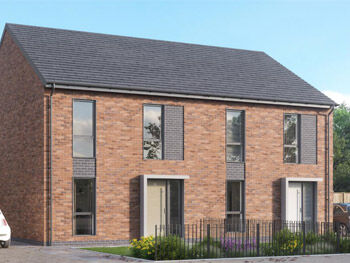Birmingham City University works with whg to deliver one of the first DfMA homes
 Birmingham City University is working with leading Midlands home provider whg, to develop modular homes to help tackle the UK’s housing crisis and low productivity facing the industry. The proposal is one of the first of its kind in the UK market.
Birmingham City University is working with leading Midlands home provider whg, to develop modular homes to help tackle the UK’s housing crisis and low productivity facing the industry. The proposal is one of the first of its kind in the UK market.
Supported by £1 million of research funding from Innovate UK, the project hopes to reduce the cost, increase the speed and improve the quality of social housing construction in the West Midlands Region. The project will benefit from a wealth of expertise drawing from the project partners including whg (as the testbed project provider, technology integrator, and project manager), Northmill Associates (as the product designer), QM Systems (as the production designer and production engineer), Hadley Group (as the 1st tier parts supplier and assembly engineer), Energy Systems Catapult (as the energy modeller) and Birmingham City University (as the off-site construction advisor and knowledge-based engineering (KBE) tool programme designer).
The DfMA house project addresses the government priorities including meeting the Construction 2025 targets to reduce cost, deliver faster, reduce CO2 emissions and, potentially develop the export opportunity, and align with the transforming construction industry objectives.
As well as the economic benefits of cost and time reduction, the project aims to improve tenants’ quality of life through the delivery of energy-efficient DfMA homes that minimise their fuel poverty risk, increasing savings to create more net disposable income.
Led by Dr Franco Cheung, the team at Birmingham City University’s Faculty of Computing, Engineering and the Built Environment (CEBE) have begun to develop a knowledge-based engineering tool, which will help explore and inform the most effective types of Advanced Methods of Construction (AMC), i.e. Design for Manufacture and Assembly (DfMA) houses proposed in the project.
Franco said:
Chief Executive Gary Fulford of whg said:
"AMC offers a great opportunity to tackle the housing crisis and help us reach our target of building around 3,000 new homes in the next five years. These homes are quicker to build, quicker to install and a lot more energy-efficient, while still maintaining the high quality of our traditional new builds.”
Plans have been submitted to the relevant councils for a number of sites in the regions. These include derelict garage sites, where modular homes offer an ideal opportunity to bring them back into use. Subject to planning permission, whg hopes to have the first homes in place later this year.